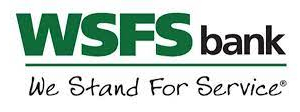Access to Capital 101: Explore Your Options

For many small business owners, taking the next step with their business’s growth comes down to available cash flow. Managing cash flow and comparing it to a business’s financial projections allows owners to make important financial decisions to help sustain and grow their business, like applying for a loan.
However, gaining access to the capital small businesses need to generate and maintain sufficient cash flow levels can be challenging, especially in our current economic environment. Here are a few ways you can access new or additional capital this year.
Explore SBA and Small Business Loans
The U.S. Small Business Administration (SBA) offers loans designed to start or expand a small business and works with preferred lenders throughout the country to help owners find the right fit for their business. The SBA sets guidelines for loans and helps reduce lender risk, making it easier for new ventures and smaller businesses to get the funding they need.
The SBA lists different kinds of loans your business could apply for, as well as eligibility requirements. SBA 7(a) Loans are a popular option due to their low cash investments, long repayment terms, and guaranteed backing by the government. This allows flexible credit requirements for borrowers that have challenges obtaining traditional bank financing. SBA 7(a) Loans can be up to $5 million and provide repayment terms of 10-25 years at modest rates.
Speak with your lender about available loans that can help you reinvest in your small business while also generating revenue and providing an in-house access point to capital.
Some options that may work for your business include:
- Commercial Real Estate Loans: Owning real estate for your business builds equity and can be a revenue, and cash flow, generator. Additionally, if your business occupies at least 51 percent of the space, you can lease the extra space to tenants, creating consistent, in-house capital for the business, depending on how the property is zoned. There are also tax advantages to owning your business’s home, such as deducting annual interest paid on the loan and other expenses.
- Buying Equipment for Your Business: Equipment financing loans are a great option if your small business needs or sells equipment. These loans can help finance transactions, provide tax benefits, and are available for small businesses at any stage, from startups needing initial equipment to businesses that are expanding their operations.
- Lines of Credit: Small business lines of credit are great for providing cash flow for businesses that experience seasonal changes in working capital, need a short-term cash infusion to cover rising costs for inventory, or have fast-moving business opportunities that owners want to take advantage of.
Maximize the Employee Retention Credit (ERC)
During the pandemic, the SBA’s Paycheck Protection Program (PPP) and other initiatives under the CARES Act were implemented to help small businesses keep operations going and employing their staff.
While many of these programs have expired, another program, the Employee Retention Credit (ERC), is still available. Unfortunately, many small business owners are not aware of it or how to apply.
- What Is the ERC?: According to the IRS, the Employee Retention Credit is a refundable tax credit for businesses that continued to pay employees while shut down due to the COVID-19 pandemic or had significant declines in gross receipts from March 13, 2020, to Dec. 31, 2021. Even if your business received PPP funds, you may be eligible for the ERC.
- Why It Matters: If your business qualifies, the credit can give your small business an infusion of capital. For all quarters in 2020, the deadline to apply for the ERC is April 15, 2024, and for all quarters in 2021, the deadline is April 15, 2025.
- Next Steps: To determine eligibility and apply, work with your accountant, tax advisor, or payroll company using these guidelines from the IRS.
Now is the time to lean in on your business’s assets and resources to generate revenue, find new ways to access capital and grow. Work with your small business banker, lender and support system to unearth benefits for your long-term success.
________________

Steven J. Cunningham is Senior Vice President, Director of SBA Sales at WSFS Bank. He has 30 years of banking and financial services experience with an extensive background and knowledge of SBA programs, business banking, commercial real estate, and more.
Connect With Your Community
Subscribe for stories that matter!
"*" indicates required fields































